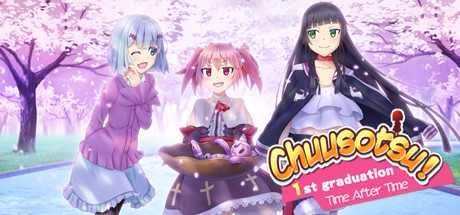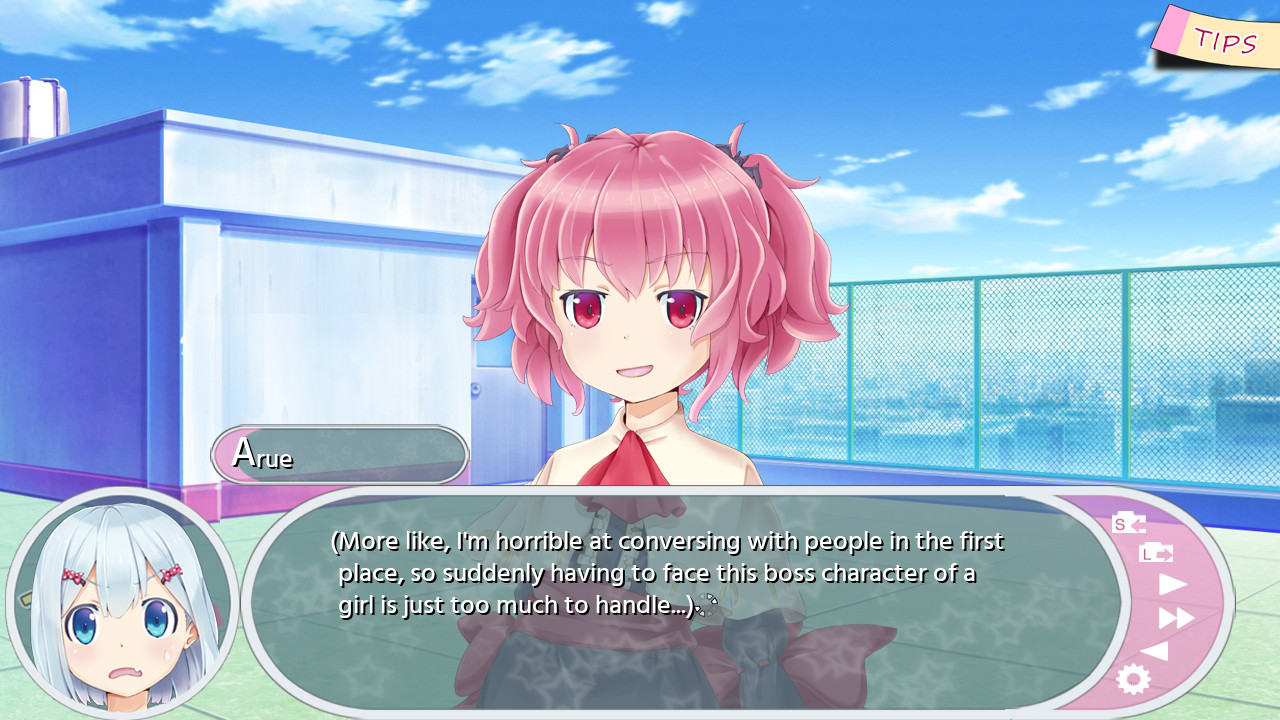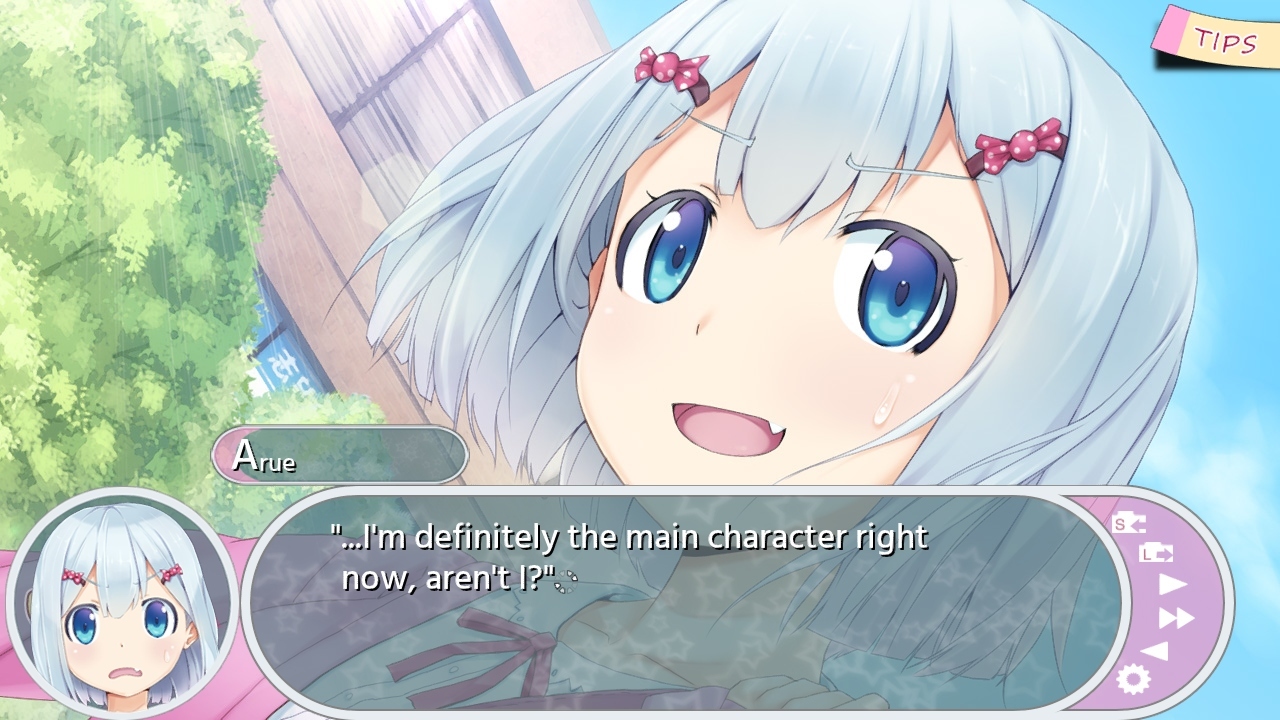Existing User Log In
New User Registration
Register for a free account to gain full access to the VGChartz Network and join our thriving community.





America - Front


America - Back

Studio Beast
Visual Novel
 (Add Date)
(Add Date) (Add Date)
(Add Date) (Add Date)
(Add Date)
| Owners: | 0 |
| Favorite: | 0 |
| Tracked: | 0 |
| Wishlist: | 0 |
| Now Playing: | 0 |
Video games and storytelling have had something of a questionable history in the past. Perhaps because of the usual necessity to focus on one main character for essentially the entire plot, as well as the need to focus on providing a fun experience before an engaging narrative, most games have tended to push story to the side, and rightfully so. Others, however, such as Chuusotsu! 1st Graduation: Time After Time, have taken the opposite approach, putting story in front and making gameplay a second responsibility. It’s amazing, then, that a game devoted entirely to its characters and narrative somehow manages to screw up nearly every single imaginable aspect of storytelling.

Chuusotsu is a kickstarted visual novel that describes itself as being a “philosophical story,” and the premises is interesting on paper, even if it feels like something ripped from a rejected Hideo Kojima game. In the most colorful dystopian world in the history of fiction, standardized testing has become the means by which someone’s career, and by extension, value to society is determined. Depending on how children perform in school and what careers their testing lines up with, they are injected with hand stamps filled with nanomachines that boost strength, intelligence, social ability, and provide people with the general skills necessary to perform their jobs. Those who fail to perform well do not receive stamps. These people, known as “Chuusotsu,” are the lowest tier of society, and are much weaker than those who have stamps, both mentally and physically.
Unfortunately, the idea doesn’t get much farther than being intriguing as a concept. The first of many problems is that Chuusotsu has some of the most unforgivably awful writing in any story from any medium that I have ever seen. The dialogue is bloated and often spends several dozen lines of text doing nothing more than bringing up points that have either previously been firmly established or explaining something that could have been established in two or three lines at most. And when it’s not doing that, it’s just blatantly absurd, making its characters seem like aliens that have only vaguely heard of the idea of human contact, rather than actual people engaging in conversation. Virtually every single character is so exaggerated, silly, and over the top that it’s impossible to take anything being said seriously.

Strong characters can make up for a weak plot, though, so it's even more of a shame that Chuusotsu fails to make any of them likable or relatable in the slightest. The plot of Chuusotsu focuses on three unstamped girls - Arue, Arara, and Koiro - who have all been suckered into living in an apartment in the middle of a city in the hopes of moving up in society, only to find out that they are actually a part of an odd social experiment by the company that owns the apartment. In order to be allowed to stay in the apartment, they have to complete various “philosophical challenges.” As a result the narrative revolves mostly around those three girls, with the occasional appearance from a minor character. It’s astounding, then, just how badly Chuusotsu fails at making any of them likeable or relatable in the slightest, despite the story doing essentially nothing but focusing on them and their supposed growth.
Koiro is probably the closest the game comes to creating a character that seems like they could possibly be a real human, and is largely closed off and reserved. Arue constantly overreacts to every single thing and spends at least half of her dialogue screaming and making ridiculous expressions. And Arara is creepy. That’s pretty much her sole personality trait; she stalks Arue and sometimes talks about herself in the third person to reinforce how creepy she is.
The character arcs are about what you would expect from this type of affair, with the three main protagonists slowly learning to live with each other while overcoming whatever major personality flaw they might have that’s making it difficult for them to survive in the world. The major underlying problem is, once again, Chuusotsu fails to make any of these arcs feel genuine or even remotely realistic. Nearly every single point of growth for a character is accompanied by an utterly ridiculous amount of cringe inducing social flailing (usually from Arue) that culminates with an embarrassing degree of reassurance from someone else until the character finally picks themself up and does something difficult. The longer we spend with these characters, the more preposterous and unreal they seem, which should be the exact opposite of a story about people who are slowly trying to integrate themselves into normal members of society.

Chuusotsu’s biggest (and perhaps only) strength is its world, which, while it’s utterly absurd, is at least intriguing as an idea. The concept of such a career-based society, where your job determines so much of your life, is an interesting starting point to build a game’s atmosphere around. Unfortunately, after the first couple chapters or so, world building is tossed to the side in favor of as many over the top reactions and cases of poorly handled character drama as possible.
You may have noticed a complete absence of gameplay discussion so far, and that’s largely because there is none. There is no player interaction at all unless you choose to set the dialogue boxes to advance only when clicked. If you’re going to jump in, you should be prepared to read; and read a lot. And perhaps that’s not a criticism that will turn off people interested in this type of experience. Indeed, if you’re interested in visual novels, this may even be expected, and if this is an experience selling itself on being a story rather than a game, I have no problem with that (although I do find it strange that, despite all of this, Chuusotsu still describes itself as a game).
Everything else about this title is unremarkable at best. Voices are in Japanese exclusively and really begin to annoy after a while of listening to them scream in surprise at seemingly every unexpected turn. The music is acceptable but nothing to write home about, and the art design is standard anime. One rather questionable decision is the relative lack of character sprites, forcing the game to quite literally describe to the player what's happening to the characters at times via text boxes in parenthesis, but given everything else wrong with this title it's hard to even care about that.

The problem is, once again, that the story is absolutely terrible on basically every single imaginable level. Characters, narrative, pacing, world building, lore, essentially everything that could have possibly been screwed up was screwed up. There is nothing I can possibly recommend this “game” for. There’s no gameplay, it features a horrific story, generic artstyle, and the sound design becomes grating at best after “playing” for more than a few hours. The only way I could possibly suggest purchasing this game is if you feel that you have done something terrible and making yourself suffer for hours on end will allow you to atone for your failings.









